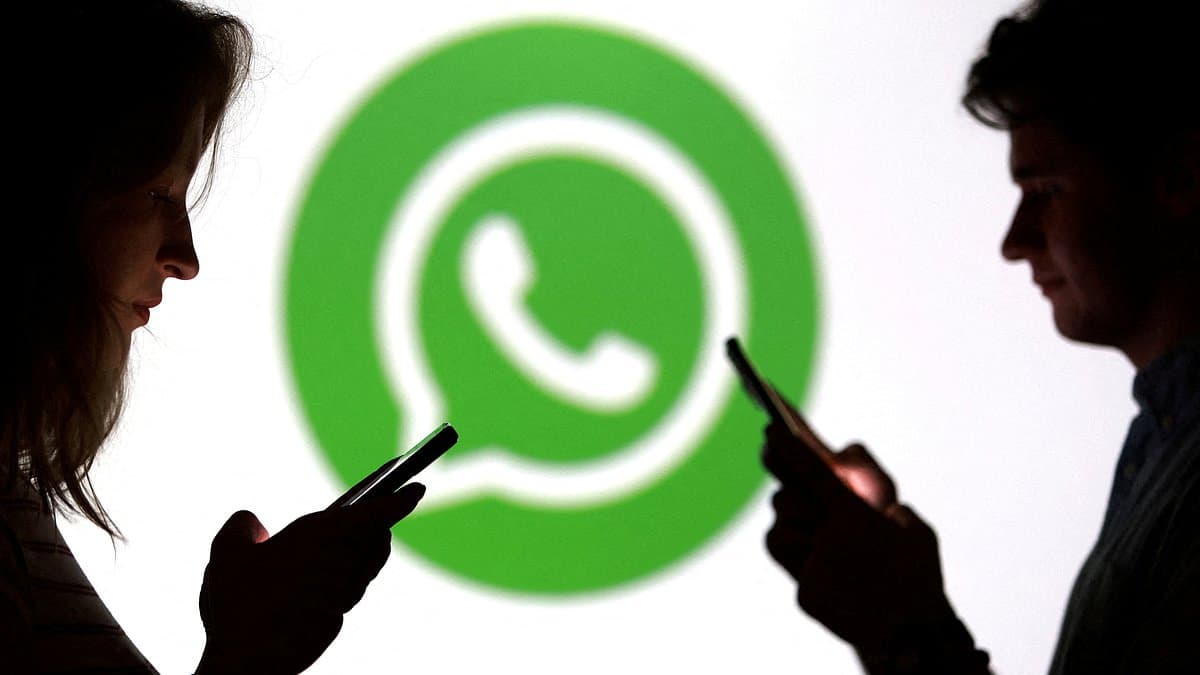We're loading the full news article for you. This includes the article content, images, author information, and related articles.
A poorly worded joke on social media by WhatsApp sparked a global firestorm over user privacy, raising urgent questions for millions of Kenyans who rely on the app for daily communication and business.

A seemingly harmless social media post by WhatsApp on Tuesday, October 28, 2025, spiraled into a widespread privacy scare, reigniting deep-seated user anxieties about data security on the Meta-owned platform. The official WhatsApp account on X (formerly Twitter) posted a message intended as a lighthearted cultural observation: “people who end messages with ‘lol’ we see you, we honor you.” The phrase “we see you” was immediately interpreted by thousands of users not as a figure of speech, but as a literal admission that the company was reading their private messages, striking a nerve with its global user base of over three billion people.
The reaction was swift and intense. Users flooded the platform with replies questioning the integrity of WhatsApp’s core security promise: end-to-end encryption (E2EE). Questions like, “aren't we end to end encrypted how tf can you see then” and “So end-to-end encryption is just a lie” proliferated, alongside memes depicting Meta employees spying on user conversations. As the backlash mounted, WhatsApp’s social media team moved to control the narrative, posting a series of clarifications. “'we see you' is meant figuratively, not literally! end-to-end encryption means NO ONE, not even we, can see your messages,” the company stated in a follow-up post on October 28, 2025. Another clarification reiterated the point: “Your personal messages are private between you and the recipient. ‘we see you’ in our original post was meant as a way to say we relate to and understand people who love to use lol as a way to end a message.”
For Kenya, the incident carries significant weight. With a staggering 97% of internet users on the platform, WhatsApp is the cornerstone of digital communication in the country, deeply embedded in both social and commercial life. From urban professionals in Nairobi to small-scale farmers in rural areas, the app is an indispensable tool for everything from daily conversations and family updates to running businesses and coordinating logistics. A 2025 report highlighted that 80% of Kenyan businesses use WhatsApp for customer communication, and 50% of its users in the country make mobile payments via the platform, underscoring its critical role in the informal and formal economy. The platform's perceived security is paramount. Any erosion of trust in WhatsApp’s privacy promise could have tangible impacts on the millions of Kenyans who rely on it for their livelihoods and personal connections. The controversy serves as a critical reminder of the vulnerabilities inherent in a digitally-dependent economy.
At the heart of the controversy is WhatsApp’s end-to-end encryption, a security protocol that ensures only the sender and the intended recipient can access message content. According to WhatsApp’s official help center, E2EE functions like a digital lock; every message, photo, video, or call is secured with a unique key held only by the participants in the conversation. This process happens automatically and is designed to prevent anyone in between—including WhatsApp and its parent company, Meta—from reading or listening to the communications. While the technology itself is robust, the incident highlights a persistent trust deficit with Meta, which has faced numerous privacy scandals, including the Cambridge Analytica affair. For many users, the joke was perceived as a slip of the mask, confirming long-held suspicions about the parent company's data-harvesting business model.
The global scare occurs within a Kenyan context of growing awareness and regulation around data protection. Kenya’s Data Protection Act of 2019, enforced by the Office of the Data Protection Commissioner (ODPC), establishes a legal framework for the responsible handling of personal data. The Act grants citizens the right to privacy and control over their personal information, and it mandates that entities processing data obtain consent and report breaches. While the ODPC has been active in investigating data breaches and issuing warnings against the unauthorized sharing of personal information, no specific statement has been released regarding this particular WhatsApp incident as of Thursday, October 30, 2025. FURTHER INVESTIGATION REQUIRED. However, the ODPC has previously cautioned Kenyans about sharing personal details on social media without consent, underscoring the government's focus on digital privacy. This incident, though originating from a misjudged joke, amplifies the ongoing conversation in Kenya about digital rights, corporate accountability, and the need for robust enforcement of data protection laws to safeguard citizens in an increasingly connected world.
Keep the conversation in one place—threads here stay linked to the story and in the forums.
Sign in to start a discussion
Start a conversation about this story and keep it linked here.
Other hot threads
E-sports and Gaming Community in Kenya
Active 9 months ago
The Role of Technology in Modern Agriculture (AgriTech)
Active 9 months ago
Popular Recreational Activities Across Counties
Active 9 months ago
Investing in Youth Sports Development Programs
Active 9 months ago